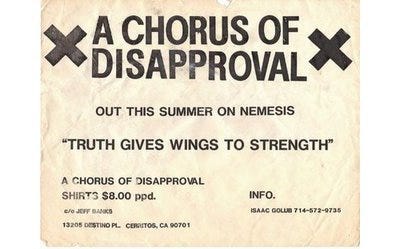Probably the only flash diet that "works"— and what to do after
How to drop 15 lbs in 7 days and another 15 lbs in 4 months
I mentioned off-hand and quickly a small joke at the bottom of my Ozempic piece the other week about eating 12 eggs a day for seven years. And how it will, in the long term, outpace any benefits gained from that drug. Couple people thought it was a troll… it’s not a troll… might seem so if you define health in terms of studies, and to be sure the idea is not entirely double-blind… but it’s not a troll. It is probably true. Really, a dozen eggs is a framework: done long enough, single-ingredient, nutrient-dense foods that are filling and which have been in use for thousands of years... will get better aesthetic results than any shortcut. It’s the anticlimactic, boring reality—eat the old people food, get moving, break a sweat, try and get normal sleep; don’t stress—that over time, spells out what “health” really is.
But what about losing weight in the short term? Isn’t that what Ozempic’s about? The drug does that pretty well… there are fewer side effects now than we thought… and, yeah, 12 eggs don’t specifically do that. And so if it’s a party and cool for people to get after this sort of weight loss with drugs*, I ask… why not without it? And so the obvious questions…
Are people getting similar, radical weight loss effects (10% bodyweight in a year, let’s say) on the same timeline without using a drug?
What makes a diet “safe”?
And if they are (they are), and if it’s not a dozen eggs—what is it?
*My context real quick regarding dieting: no one has to lose weight, but if someone wants to then cool. A neutral issue for this newsletter—no preachiness or like prohibitiveness here. Only thing I will say is severe caloric (and nutrient/vite) restriction in the medium and long term is a bad idea (explained below)
It’s doable
I should mention, pretty quickly and very definitively that, yes, people can lose weight on a quick timeline. (No one has to. But people can.) You might read stories that flash diets don’t work, and that long-term ones (like carnivore) don’t either, but that’s narrow context and is explained down below). Really, it can work. It just… needs to be done right.
Effectively the people who “succeed” in flash diets know how “health” works, and in this reality (movement, sleep, some exercise, food, light) a limited-time-frame “diet” can work. The context is that news tends to be written (and edited) by skeptical people (rightly)… but also folks who aren’t trained—as in athletes. I don’t want to get into a thing here but… train long enough and you see this stuff having worked.) examples of this stuff working. It’s kind of that simple. It’s not incumbent on anyone, it’s just not impossible.
The How/safety
As mentioned briefly in the Oz. post—
ways of eating/diets vary according to their severity and timeline. Too hard a diet for too long is deleterious for one’s metabolism, too little fat destroys people’s hormonal regulation, too few carbs probably makes you go bald (or become cranky). And so generally, the stricter the diet, the shorter it must be. (Restriction in diets’ cases is based on macros, calories, protein etc…)
And so there are short-term “diets” that shed weight. And there are longer term “ways of eating” (often inaccurately referred to as diets) that keep the weight off. Two ways… both. Again: both. To be sure, both of the “diets” that work here… keep nutrients and vitamins high, and fats and carbs… there. Enough of them.
Short Term: The First type of diets
The very strict, pretty healthy (nutrient-dense) ways to severely limit caloric intake have serious results in the short term (maybe 10% ish over a year). They are sometimes referred to as “flash diets,” by… non lifting-psycho press. I’d call them athletic weight manipulations, since they were invented by lifters/are done in the context of activity. The AWMs I did are week-long things weight-class athletes (wrestlers, weightlifters, fighters) found to literally shed 7% maybe bodyweight over a week. Good nutrient levels, normal food. The best of these diets work so well that they should not be done more than a couple times a year, and they should not last longer than a week. Mostly because the calories are quite low. But done on a short timeline… and not all the time… fine.
Some of these diets have popped up in the dark nutrition sphere lately. Some/most are single-ingredient… all they do is shed weight. Non-psycho lifting press stories cover this stuff like it’s a shock the weight comes back after. But it’s supposed to. These AWMs are designed to shed fat in quick time, to hit a number on a scale. They are not sustainable. They don’t last: they’re time constricted. It’s pretty simple. But they “work” in the long-term when someone follows them up with a… regulated way of eating, done medium or long term, after.
Medium Term
Medium and long-term approaches are the opposite of short term AWM flashes: they are not based on maximal restriction but on minimal restriction. They work over time. They should not be hard. Which counterintuitive—shouldn’t a “diet” be hard? No. It should not. It should not be hard. It should be stuck to. It should not be very restrictive, or difficult. It has to be able to be followed. Repeated this a bunch of times since it’s important. That’s how it works.
Put simply, the medium-term chill path… there are many of them… they are not diets but eating protocols. Macronutrient adjustments, volumetric eating, tons of other ones, addressed in the long free Ozempic post the other day. Ways people (athletes?) eat. Ways people choose food. At their best they work in the background, not very restrictive, and are designed less around an aesthetic result than around… recovery, feeling normal, nutrients.
Connection
That said: both short and long/medium term have the same rough science behind them: calories (more specifically macronutrients) need to be… manipulated, and nutrients and vitamins kept high, so as to… sort of lead to a “result,” and have someone feeling good. But the best medium term/chill “ways of eating” here don’t feel like big adjustments.
Together
And so it’s this context that groceries beat or meet Ozempic in the semi-long term. Which is why the egg thing isn’t a joke. In the short term you eat only “eggs” (or something else) and in the long term you eat many eggs and other things with some modifications.
Examples/reality
I’ve done a handful of flashes (not eggs) over the past two dozen years I’ve been training, and two this past year. Many worked. The two were similar to eggs—one ingredient, normal healthy food, used for a while. The “best” one was an experiment I did last November, ate one thing for five days—one meal off—and lost 15 lbs.* Then after that week since it went so well I did the medium-long term tweak above (basically dialing things in, macros stuff, normal eating with a couple tweaks) that lost me 20 lbs over the next few months.
*Not lying. It happened. Context: I am 6’3 and was well over 200 so. Came after a “dirty bulk.”
Losing weight or fat is certainly not a requirement for anyone, and nothing I’d ever push in this letter. It’s just that doing this without drugs went well over Ozempic’s 11% BW magic number. Weight’s stayed off easy—no drugs, nothing weird, nothing really restrictive, ate at restaurants (check out seed oil post), worked out two/three times a week (max 3h), just a week-long experiment that I capitalized on. Anyways, specifics (meal plans, groceries, expectations, what to eat, how to measure) on the short- and long-term protocols below the jump. Includes/reviews several other single-ingredient AWMs (if you’re not into one of these foods), granular specifics on how to count macros, how training fits in, a sample meal plan, segueing from short to long...
Keep reading with a 7-day free trial
Subscribe to SNAKE SUPER HEALTH to keep reading this post and get 7 days of free access to the full post archives.






